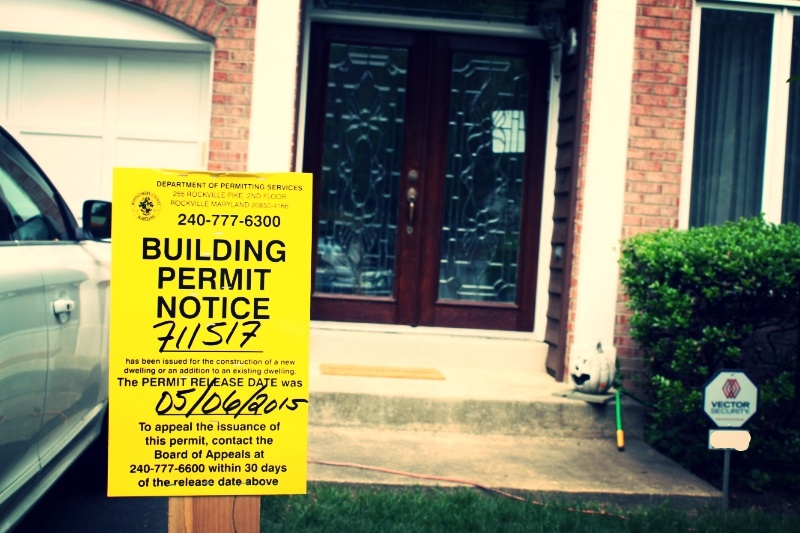Before embarking on any kind of home improvement project, homeowners often ask us whether they will need to obtain a permit. The short answer? Most likely.
Most major projects - including low-maintenance decks, custom garages, screened-in porches, and home additions - require proper permitting. The specifics vary from county to county, but most jurisdictions will slam you with a big fine if you fail to obtain a proper permit, and may even force you to tear the structure down.
To help you get a general idea about what types of home improvement projects may need a permit, check out our list of common projects that typically do and do not require building permits below.
You probably need a permit if…
- You are building a new home
- You are building a home addition on an existing structure
- You are building a screened-in porch
- You are building a deck in Maryland, Virginia, or Washington, D.C.
- You are building a new garage
- You are building or altering the apron of a driveway
- You are building a shed that is 120 square feet or larger
- You are building a fence
- You are building a swimming pool
- You are building a hot tub
- You installing new windows or changing the size of existing window frames
- You are installing new doorways or expanding existing doorways
- You are installing a new fireplace
- You are replacing HAVC/heating
- You are installing solar panels
- You are demolishing an existing structure
- You are finishing off a roughed-in bathroom
- You are finishing a basement and constructing walls
- You are installing an exit window
- You are moving a structure in or out
- You are replacing structural members of roof framing
- You are doing electrical work
- You are doing plumbing work
- You are building a retaining wall
- You are doing exterior work on historic property
You might not need a permit if…
- You are building a small, one-story, detached structure as a shed or playhouse
- You are re-siding or re-roofing
- You are painting or adding wallpaper
- You are installing temporary movie screens or stages
Remember that each county has different rules, so be sure to consult with your contractor in order to determine if your project requires a permit for certain.
Obtaining a Building Permit
A quality contractor will take care of permitting for you. When you hire a contractor, it is their responsibility to secure a permit before he or she even begins designing your project.
Be wary of a contractor who asks you to obtain a permit yourself. This is a red flag that could mean your contractor isn’t officially licensed to work in your area or that they have complaints against them. A contractor who is reluctant to handle the permitting application for you could also be having financial problems, and may be unable to afford the cost of permitting and other special costs down the line.
Alternatively, a quality contractor should be intimately familiar with the permitting process, and know exactly what steps need to be taken to secure a proper building permit. Your contractor should handle the entire process from start to finish, including creating and submitting permit-ready plans and paperwork to the local departments of person and posting applicable documents on-site. A good builder will include the cost of applying for the permit in his or her initial bid, and include this information in the initial contract.


